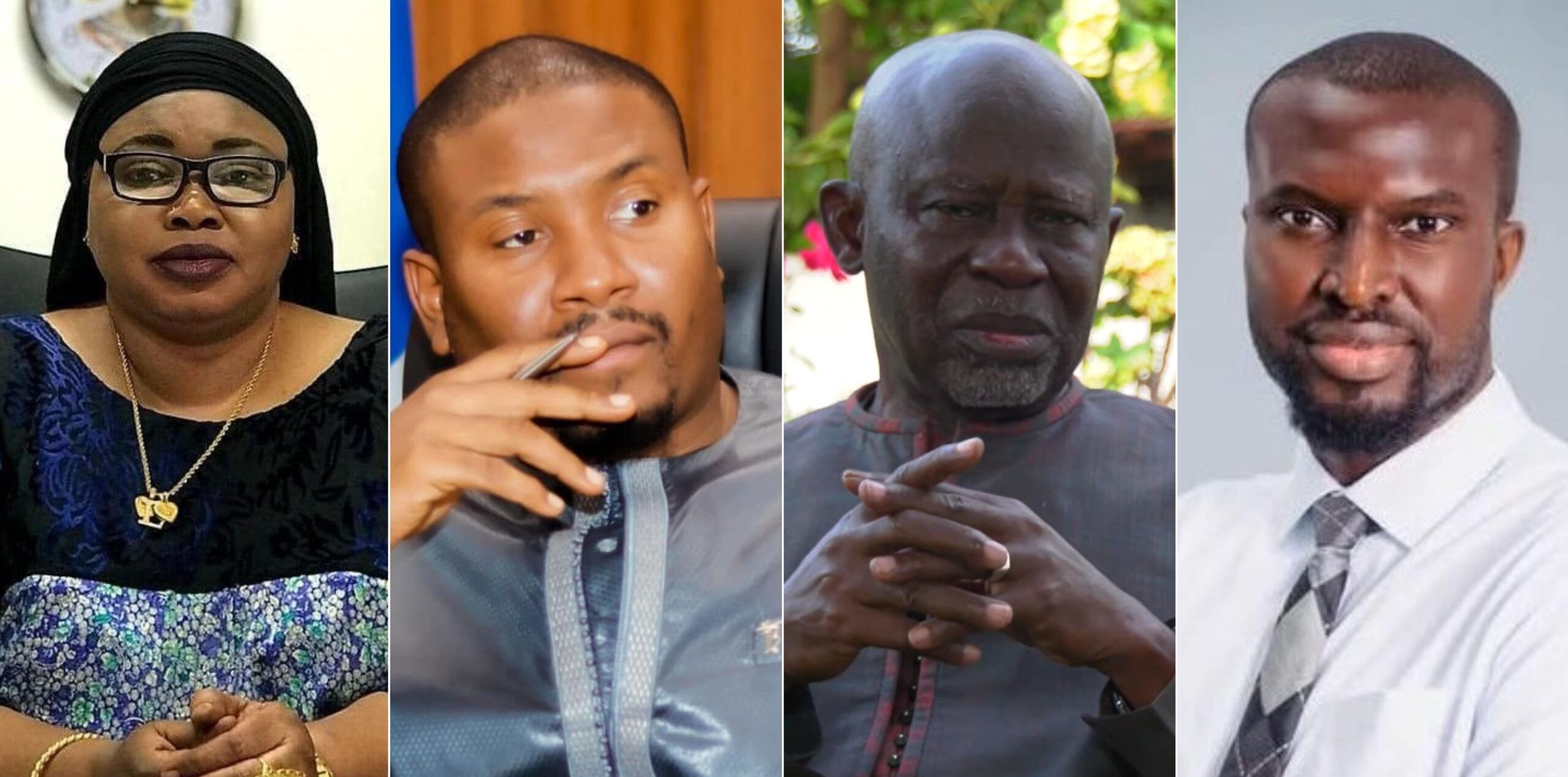Written by: The Fatu Network Newsroom
The United Democratic Party (UDP), Gambia’s main opposition party, is experiencing significant internal divisions as the 2026 presidential elections approach, with disagreements over leadership succession creating visible tensions within the party ranks.
The Leadership Question
The divisions center on whether veteran leader Ousainou Darboe should continue as the party’s presidential candidate or make way for younger leadership, with Kanifing Municipal Council Mayor Talib Ahmed Bensouda frequently mentioned as a potential successor. This has led to the formation of what Banjul Mayor Rohey Malick Lowe described as two camps within the party: “the Darboe and Bensouda camps.”
On June 17, Yankuba Darboe, chairman of the Brikama Area Council (BAC), made clear his position in an interview with Mengbe Kereng TV: “Any day they tell me that has changed and it is now Talib, I will find my way somewhere else.” He accused Bensouda of conducting political activities in his region without consultation and claimed that during party tours, “all you see are Talib Bensouda T-Shirts.”
Allegations of Internal Tensions
The crisis extends beyond succession politics. On June 12, Banjul Mayor Rohey Malick Lowe appeared on Eye Africa TV’s Sunu Reew platform, alleging she faces sustained verbal abuse and character assassination from within her own party. Lowe claimed the party leadership has remained silent while she endures attacks, stating that party leader Ousainou Darboe has left her “vulnerable to attacks.”
Yankuba Darboe has accused Bensouda’s supporters of targeting Lowe with “incessant insults and derogatory remarks” and alleged that Bensouda is “using personal branding to overshadow the party” and “sponsoring others under his name with flyers and T-shirts distributed during party rallies.”
Responses and Calls for Unity
Bensouda addressed the divisions on June 14, referring to them as “push and pull” within the party. In a live video on social media, he expressed disappointment with the situation and called for unity, urging the party to focus on “how to remove President Adama Barrow in 2026.” Reports suggest Bensouda briefly considered leaving the party but was persuaded to stay by other members.
Broader Implications
The internal tensions have drawn commentary from across the political spectrum. On June 18, human rights activist Madi Jobarteh described the UDP’s situation as reflecting broader systemic issues in Gambian political parties, arguing that “personalizing political parties” undermines democratic governance.
On June 17, economist and social commentator Nyang Njie published an open letter on his social media platforms expressing concern that the divisions risk alienating independent voters crucial to the party’s electoral prospects. He warned that “the longer this issue festers, the greater the risk of disillusionment among independent voters.”
What This Means Going Forward
The UDP faces several potential scenarios as these tensions continue:
- Party Unity vs. Fragmentation: The party leadership’s ability to resolve these divisions will determine whether the UDP remains cohesive or experiences defections ahead of 2026.
- Electoral Impact: The public nature of these disagreements may affect the party’s appeal to undecided voters who view internal stability as important for governance.
- Succession Timeline: Pressure may mount for an earlier resolution of the leadership question, potentially forcing the party to address succession sooner than planned.
- Organizational Reform: The crisis has renewed calls for structural changes in how Gambian political parties operate, with activists arguing for more democratic internal governance.
The UDP leadership has maintained that discussions about the presidential candidate are premature and that all aspirants must follow established party procedures. However, the intensity of the current debates suggests this issue will continue to shape the party’s trajectory in the coming months.




